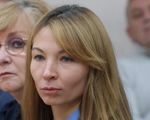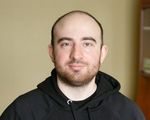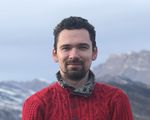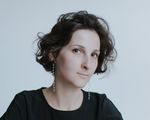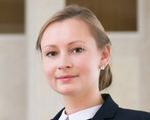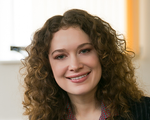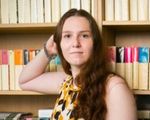About Success Builder
How do you find your place in life? How do you find something to do that both comes naturally to you and makes you happy? The answer is that you have to apply the knowledge you’ve gained from university and from life itself correctly. The Success Builder Project features HSE University graduates who have discovered themselves through an interesting business or an unexpected profession. The protagonists share their experiences and lessons learnt and talk about how they’ve made the most of the opportunities they were given.
Sergey Pavlovsky combines a top management position at Renova with teaching at the Moscow State University Faculty of Economics, coupling his academic knowledge with the realities of the investment industry. What does an investment director do? How to start a career in finance? How do graduates contribute to HSE’s future? Sergey Pavlovsky answers these questions from the portal’s news service.
How did you first become interested in economics?
When I was a lyceum student, I saw an announcement for HSE University preparatory courses. I attended an Open House at which Professors Yasin, Shokhin and Kuzminov spoke. I decided to attend HSE and travelled to the university three times a week during my final year of high school. Back then, the Higher School of Economics was not considered a leading Russian university. It was more of a ‘university-type start-up’ and I was game for the experiment. Maybe that’s why I liked economics right from the start: I saw it as one of the practical applications of mathematics and everything about it was understandable and interesting. When I was able to take courses on such subjects as insurance, banking and stock markets as a fourth-year student, I began to get a clear understanding of which direction my career would take.
Why didn’t you pursue a career in academics after earning your master’s degree?
After defending my master’s thesis, I had to choose whether to eventually become a professor or go into business. By that time, I already had experience in consulting and in some of the largest business groups in Russia. I chose a business career. Also, I have always been interested in teaching and am happy to teach at Moscow State University – although I do not have time for research, unfortunately.
Have you always liked the teaching profession?
I have a lot of experience, and this gives me something to share with students – and this seems to come naturally. There was a time when I lectured at HSE also, and the students were really in need of more case studies and applied skills. Of course, the Higher School of Economics provides an extremely important foundation: Irina Ivashkovskaya gave us profound knowledge of corporate finance and how to evaluate companies, and Nikolai Berzon explained stock markets to us. But once you get out and start working in the industry, you have to ‘grub about’ for yourself, and so I wanted to acquaint students with those realities while they were still at the university. Along the way, I became interested in recruiting students, although many HSE graduates already work in the investment field. And in financial departments, you often meet MSU Faculty of Economics graduates.
What do you think HSE graduates have in common? Why do they seek each other out?
I think we have similar experiences and worldviews, as well as a particular knowledge base. Another advantage is the ability to work under stressful conditions, process a large volume of information and meet deadlines. That’s why HSE graduates achieve the best results in the investment business. The only other place I have seen specialists of that calibre was at the MBA programme at the Skolkovo Business School.
Why did you decide to get an MBA?
The crisis in 2008-2009 made me want to learn about business. Skolkovo was accepting students for its first full-time programme and it was a world-class innovative project. Only four months of the 16-month course were held in the classroom. The rest of the time, students worked in actual consulting firms and business projects in China and the U.S. What’s more, we were taught by instructors from the world’s leading business schools and there was even a short programme at MIT. This kind of global format takes you to a completely new level of understanding business processes.
How did you end up at Renova? How does the investment business work?
It was the result of networking — as is often the case among HSE alumni. Renova offered a new level of challenges that I found very interesting. My current job has two main objectives: develop a strategy for increasing asset value and acquire or sell off assets. In recent years, however, the emphasis in the investment field has shifted from making numerous M&A transactions towards managing existing assets.
As a rule, an investment portfolio contains 10-15 companies in various industries and conditions. Our task is to make about a 300% return on the initial investment in a few years. The assets can be in different conditions — with some companies, it is better not to interfere at all, but simply monitor its management. Individual employees or teams are responsible for overseeing several companies. They become immersed in those structures and industries as a whole, becoming physically involved in management processes. Sometimes this immersion is particularly deep: last year, I spent six months in the Far East where my colleagues and I searched for a CEO for a mining company.
How do you gain in-depth knowledge of a particular industry?
I usually make use of online courses, although it happens that I’ve just graduated from the Moscow Mining Institute. Sometimes it is also useful to take part in various professional and industry-based associations. For example, I am a member of the Mining and Industrial Complex Commission of the Russian Union of Industrialists and Entrepreneurs. That body discusses solutions to systemic industry issues. Every industry is an endless source of interesting information. You become acquainted with interesting people, new technologies and business models. You learn from highly qualified specialists and participate in the creation of new businesses, industries and services.
What are the most promising areas for investment?
This will come as no surprise, but the mining sector is making significant gains. The latest devaluation of the ruble and world prices have boosted profitability, prompting the launch of many capital-intensive projects. The same is true of technology and innovation. Yandex, the Mail.ru Group and Sberbank – all companies that combine technology and commerce – are making substantial investments.
How can a newcomer start a career in the investment business?
Consulting firms and investment banks are good places to get your foot in the door. It’s even better to do an internship abroad and then use that experience to hire on with a good company here. That’s why it’s good for university students to take advantage of offers from the ‘Big Three’ and ‘Big Four’ — especially because reps from those firms often come to HSE to invite students to start their careers with them. Experience with such companies enables you to get a sense of your abilities and strengths, and after that, you can submit your résumé for more specialized areas and develop specific competencies.
Given the rapid pace of the change, it now makes sense to take a break between your bachelor’s and master’s. You can get your MBA or other master’s degree in 5-10 years when new knowledge and skills become necessary.
How is your relationship with your alma mater?
Like many graduates, I have a desire to do something for HSE. This is common practice in the West but is only now becoming part of the university culture here. I have been a donor and the chairman of the Board of Trustees of the Outstanding Graduates Endowment for several years, and I take part in its initiatives. The university’s endowment now totals 8 million rubles. This mainly represents contributions from graduates who themselves decide how it will be used. Every year, for example, the endowment fund awards 50,000 rubles to each of six winners of the Student Research Paper Competition, sponsors prizes for the winners of HSE Scientific Battles and pays the travel expenses for teams taking part in international competitions.
The endowment has a very long-term impact. Contributions today will help support students 10 years from now and, hopefully, 50 and 100 years down the road. We launched a monthly recurring payment service along the lines of Western charitable foundations. That money accumulates in a special fund and is put primarily into Russian bonds with an average annual yield of about 10% — and only the interest is spent.
Graduates who donate more than 100,000 rubles to the endowment are given Donors Club status. This is an ‘elite business club’ of sorts that holds both formal and informal meetings and discusses pressing economic issues and possible collaboration. It represents a new stage of life after HSE. It is very gratifying that graduates feel involved with their alma mater. It gives us opportunities for networking and mutual enrichment as well as an opportunity to influence the development of Russian education.



